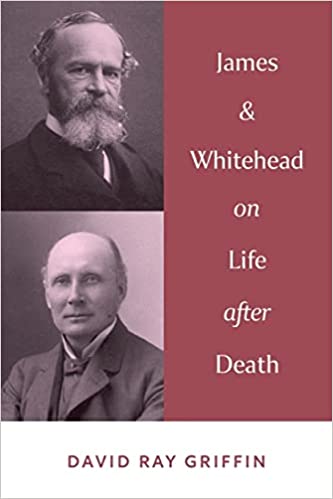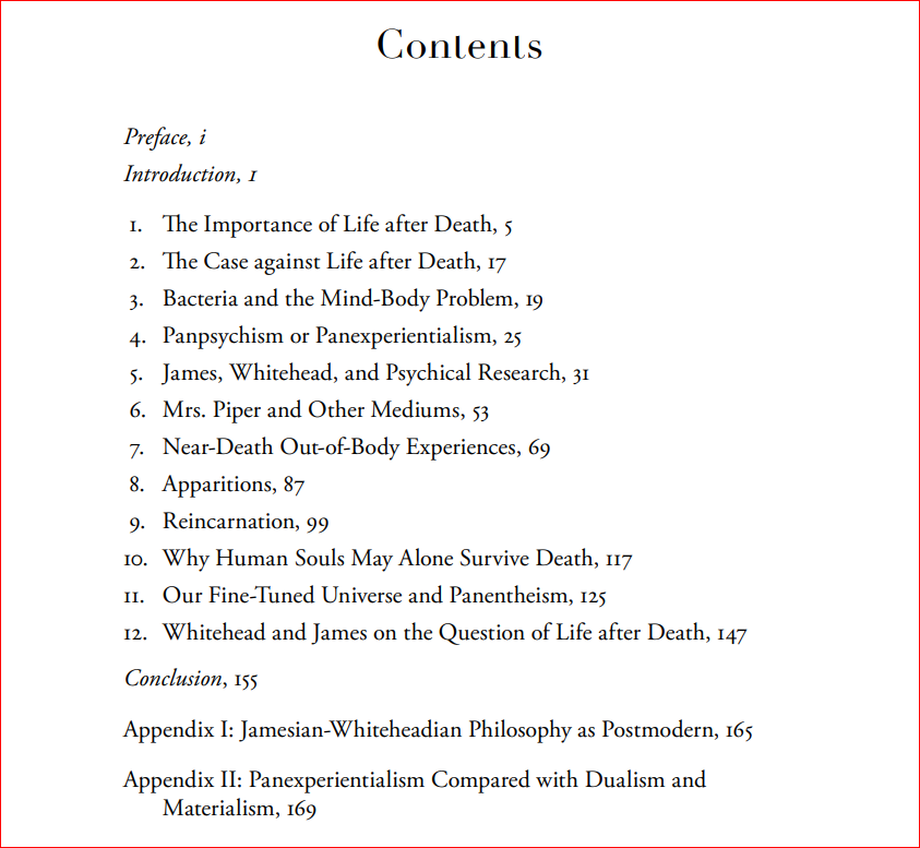- Home
- Process Worldview
- Community
- Art and Music
- Whitehead and Process Thinking
- Podcasts
- Spirituality
- Ecological Civilization
- Education
- Contact
- Social Justice
- Science
- Animals
- Sacred Poems
- Whitehead Videos
- Index of All Titles
- Practicing Process Thought
- Process Spirituality: A Spiritual Alphabet
- Recent Posts
James & Whitehead on Life after Death
David Ray Griffin
"It is not irrational to believe in life after death. It may, in fact, be most rational, given the amazing universe into which we were born."
*
"The dominant view among science-based modern intellectuals is that the idea of life after death is not one to take seriously...According to these modern intellectuals, there is no non-sensory perception; the world is basically mechanistic; and the world contains nothing but physical bodies and forces. James and Whitehead both rejected this worldview in favor of the ontology of panpsychism, or panexperientialism, and the epistemology of what James called “radical empiricism,” and what Whitehead referred to as the fundamental nature of “perception in the mode of causal efficacy.” Their combined worldview is more adequate than the modern worldview to the full range of human experience...including the evidence employed by psychical research. Observed from this perspective, the evidence for life after death is very strong."
*
"This book will likely be most persuasive to people who, on the one hand, reject divine omnipotence and, on the other hand, are uncertain that the late modern worldview is the final truth about life and the universe. The book is also for people who, in William James’s terms, are more concerned with discovering truth than avoiding error."
- David Ray Griffin


